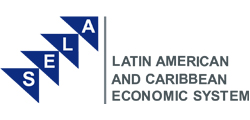BACKGROUND
The Latin American and Caribbean countries have designed institutional mechanisms that enable better coordination of matters of interest to the region, especially through integration systems and international organizations. These initiatives, which require better cohesion and monitoring, have not yet reached the level of political and economic integration that has been achieved in other parts of the world, such as the European Union or ASEAN.
In this connection, the integration process in Latin America and the Caribbean has the peculiarity of having subregional segmentations and responding to commercial issues over political ones, in addition to addressing social integration with special emphasis on border areas. Over the last 25 years, efforts have been made to promote initiatives that improve the living conditions of the inhabitants of the region through a broad social welfare policy approach, as a result of the economic growth that benefitted Latin America and the Caribbean and has allowed the region to address, thanks to the financial contribution of countries, the extensive socio-economic inequalities afflicting the continent.
Despite the economic and commercial progress, inequalities in the area of health persist, both at the country and regional levels. This has led to the need for the national health systems of the countries in the region to develop solutions that can respond to this problem without compromising the political and financial sustainability of governments. At present, it remains a pending issue on the regional development agenda.
Some achievements in this area have been achieved through universal health coverage (UHC), which has been at the centre of the global public health agenda recently. Its adoption allows national health systems to have mechanisms for cost-effective evaluation of health inequities. An example of this is the momentum that the World Bank (WB) generates in the subject, when adopting UHC as one of the fundamental pillars in its mission to eradicate extreme poverty by 2030. In addition, the Pan American Health Organization (PAHO) adopted in 2014 a regional strategy for UHC, which reflects the commitment, among the PAHO Member States, to strengthen national health systems and ensure that they provide quality services, ensure financial protection for users and promote public policies that address the socio-economic determinants that have an impact on health systems in the region.
Achieving universal health coverage (UHS) by 2030, as set forth in the Sustainable Development Goal (SDG) Number 3: Good health and well-being, and complying with Goals 3.7: “By 2030 ensure universal access to sexual and reproductive health care services, including for family planning, information and education, and the integration of reproductive health into national strategies and programs” and 3.8: “Achieve universal health coverage, including financial risk protection, access to quality essential health-care services and access to safe, effective, quality and affordable essential medicines and vaccines for all”, will require Latin American and Caribbean countries to join efforts and undertake to design and implement the best institutional and public policy mechanisms, which will inevitably require better coordination and cooperation among the countries in the region, in order to harmonize actions and strategies.
This meeting is expected to contribute to the reflection on the subject, the promotion of cooperation spaces and synergies, as well as the establishment of agreements that ensure, in accordance with the provisions of the 2030 Agenda for Sustainable Development, that nobody is left behind in the access to equitable, timely and quality health systems in the region.








